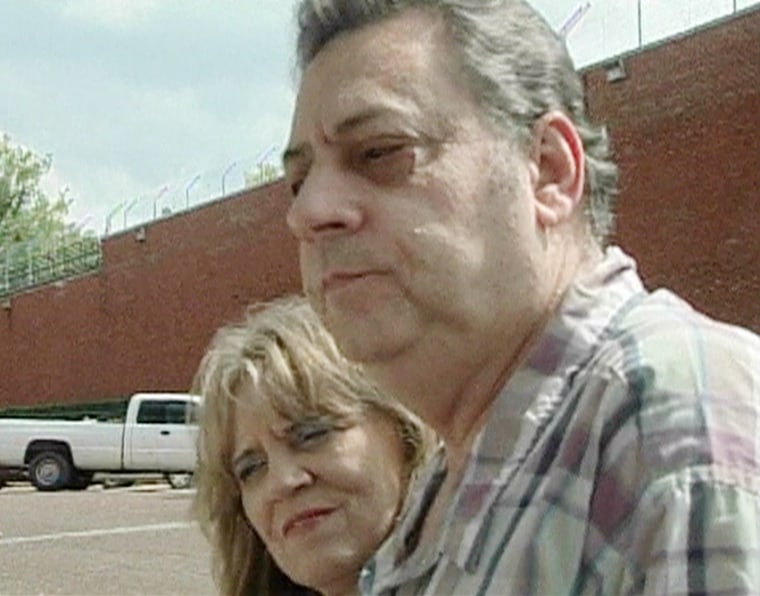With little more than the standard $100 in his pocket, Ernest Willis walked out of prison a free man Wednesday after 17 years on death row for a crime that may have never even occurred.
Willis, now 59, was convicted of setting a 1986 fire that killed two sleeping women in Iraan, about 230 miles west of San Antonio. But Ori White, Pecos County district attorney, dropped the murder case Tuesday, saying there were strong indications the fire was an accident.
White said that even if a crime was committed, he did not believe Willis was involved.
On Wednesday, Willis bounded down the prison steps and into the arms of his wife, Verilyn Willis, on their fourth wedding anniversary. It was the first time they had touched.
Willis, who at one point brushed aside a tear as his voice became choked with emotion, insisted he was not bitter about his incarceration, but added: "What goes around comes around."
"The people that knew I was innocent to start with — they'll get theirs," he said, explaining that he was referring to "all of them: prosecutors, all the Pecos County law enforcement."
In July, a federal judge in San Antonio threw out the conviction, saying authorities concealed evidence and gave Willis anti-psychotic drugs during his trial, leaving him too dazed to confer with attorneys. The judge ordered Willis retried or set free.
"This has been a long and difficult road," said James Blank, one of Willis' lawyers. "We are delighted for Ernest and his wife, and cannot begin to imagine what this newfound freedom must feel like."
When Willis was set free, he was given a plaid shirt, green pants and white running shoes, along with 10 days worth of medication and $100, the standard amount given to released inmates.
"For 18 years, $100," he said. But he said death row had made him a better person: "I used to drink, carouse, stuff like that. I'll never touch another drop."
Willis becomes the eighth death row inmate freed in Texas since capital punishment resumed in 1974. The last exoneration was in the late 1990s.
He met his wife on death row, where her brother, Ricky McGinn, was awaiting execution for the rape-slaying of his 12-year-old stepdaughter. McGinn was executed in 2000, the year she and Willis were wed by proxy.
"This is what kept me going," Willis said, his arm tightly around his wife. "It really didn't sink in until I walked out that door there."
